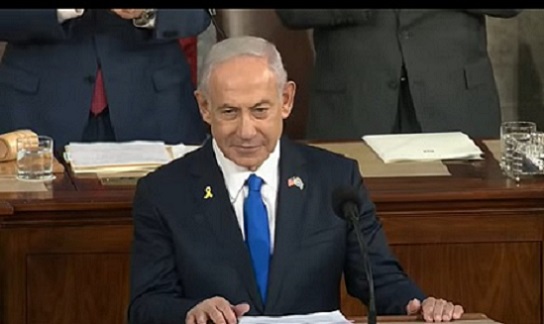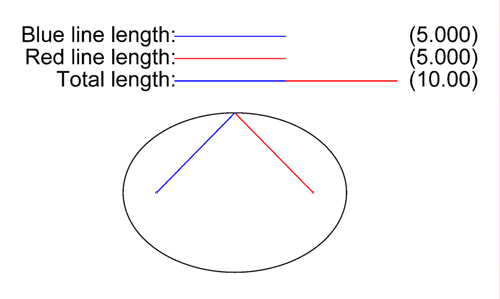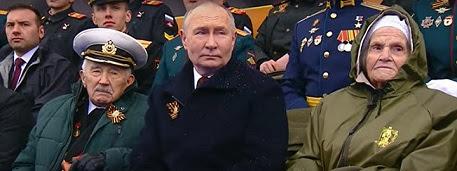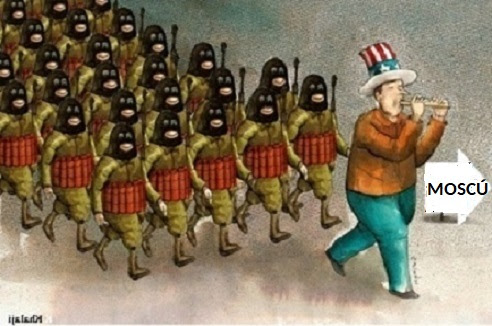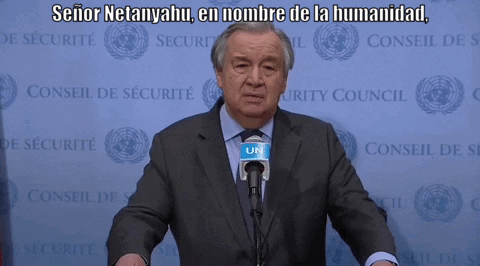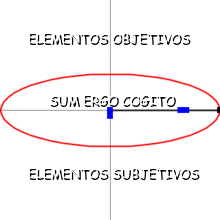Para explicar el rechazo a Trump
llevado a cabo por la élite
del Complejo Militar Industrial
y su brazo operacional,
el New Project for the American Century, PAN,
-y toda la bien montada propaganda
que se ha fabricado en su contra,
algo que nunca había sucedido
con ningún presidente del imperio-,
el subsiguiente artículo de Porter
nos dará la clave al respecto.
Porque el cisma que se ha levantado
en el "vientre del mosntruo" (José Martí),
a ésta alturas,
ya es fácil de interpretar
y podría ser reducido a ésta pregunta:
¿Podrá Trump acabar con el tremendo derroche económico que implica el gasto de emplazamiento de las Legiones Imperiales yanquis en el exterior para transferirlo -como dice él- a "rebuilding America’s crumbling infrastructure", aúnque para ello tenga
que pasar por encima del PNAC,
o será éste el que acabe con Trump?
Porter plantea la pregunta de ésta manera:
Could Trump Take Down the American Empire?
By Gareth Porter
Truthdig 2 October 2018
More than any other presidency in modern history, Donald Trump’s has been a veritable sociopolitical wrecking ball, deliberately stoking conflict by playing to xenophobic and racist currents in American society and debasing its political discourse. That fact has been widely discussed. But Trump’s attacks on the system of the global U.S. military presence and commitments have gotten far less notice.
He has complained bitterly, both in public and in private meetings with aides, about the suite of permanent wars that the Pentagon has been fighting for many years across the Greater Middle East and Africa, as well as about deployments and commitments to South Korea and NATO.
This has resulted in an unprecedented struggle between a sitting president and the national security state over a global U.S. military empire that has been sacrosanct in American politics since early in the Cold War.
And now Bob Woodward’s “Fear: Trump in the White House” has provided dramatic new details about that struggle.
Trump’s Advisers Take Him Into ‘the Tank’
Trump had entered the White House with a clear commitment to ending U.S. military interventions, based on a worldview in which fighting wars in the pursuit of military dominance has no place.
In the last speech of his “victory tour” in December 2016, Trump vowed, “We will stop racing to topple foreign regimes that we knew nothing about, that we shouldn’t be involved with". Instead of investing in wars, he said, he would invest in rebuilding America’s crumbling infrastructure.
In a meeting with his national security team in the summer of 2017, in which Secretary of Defense James Mattis recommended new military measures against Islamic State affiliates in North Africa, Trump expressed his frustration with the unending wars.
“You guys want me to send troops everywhere,” Trump said, according to a Washington Post report. “What’s the justification?”
Mattis replied,
“Sir, we’re doing it to prevent a bomb from going off in Times Square,” to which Trump angrily retorted that the same argument could be made about virtually any country on the planet.
Trump had even given ambassadors the power to call a temporary halt to drone strikes, according to the Post story, causing further consternation at the Pentagon.
Trump’s national security team became so alarmed about his questioning of U.S. military engagements and forward deployment of troops that they felt something had to be done to turn him around.
Mattis proposed to take Trump away from the White House into “the Tank” at the Pentagon, where the Joint Chiefs of Staff held their meetings, hoping to drive home their arguments more effectively.
It was there, on July 20, 2017, that Mattis, then-Secretary of State Rex Tillerson and other senior officials sought to impress on Trump the vital importance of maintaining existing U.S. worldwide military commitments and deployments.
Mattis used the standard Bush and Obama administration rhetoric of globalism, according to the meeting notes provided to Woodward. He asserted that the “rules-based, international democratic order”—the term used to describe the global structure of U.S. military and military power—had brought security and prosperity. Tillerson, ignoring decades of U.S. destabilizing wars in Southeast Asia and the Middle East, chimed in, saying,
“This is what has kept the peace for 70 years.”
Trump said nothing, according to Woodward’s account, but simply shook his head in disagreement.
He eventually steered the discussion to an issue that was particularly irritating to him: U.S. military and economic relations with South Korea.
“We spend $3.5 billion a year to have troops in South Korea,” Trump complained. “I don’t know why they’re there. … Let’s bring them all home!”
At that, Trump’s chief of staff at the time, Reince Priebus, recognizing that the national security team’s effort to get control of Trump’s opposition to their wars and troop deployments had been an utter failure, called a halt to the meeting.
In September 2017, even as Trump threatened in tweets to destroy North Korea, he was privately hammering aides over the U.S. troop presence in South Korea and repeatedly expressing a determination to remove them, Woodward’s account reveals.
Those Trump complaints prompted H.R. McMaster, then the national security adviser, to call for a National Security Council meeting on the issue on Jan. 19. Trump again demanded,
Trump Slips into ‘Endless War’ Cycle
“What do we get by maintaining a massive military presence in the Korean peninsula?”
And he linked that question to the broader issue of the United States paying for the defense of other states in Asia, the Middle East and NATO.
Mattis portrayed the troop presence in South Korea as a great security bargain.
“Forward-positioned troops provide the least costly means of achieving our security objectives,” he said, “and withdrawal would lead our allies to lose all confidence in us.”
The chairman of the Joint Chiefs of Staff, Gen. Joseph Dunford, argued that South Korea was reimbursing the United States $800 million a year out of the total cost of $2 billion, thus subsidizing the United States for something it would do in its own interests anyway.
But such arguments made no impression on Trump, who saw no value in having troops abroad at a time when the United States itself was crumbling.
“We have [spent] $7 trillion in the Middle East,” Trump said at the end of the meeting. “We can’t even muster $1 trillion for domestic infrastructure.”
Trump’s belief that U.S. troops should be pulled out of South Korea was reinforced by the unexpected political-diplomatic developments in North and South Korea in early 2018.
Trump responded positively to North Korean leader Kim Jong Un’s offer of a summit meeting and signaled his readiness to negotiate with Kim on an agreement that would both denuclearize North Korea and bring peace to the Korean peninsula.
Before the Singapore summit with Kim, Trump ordered the Pentagon to develop options for drawing down those U.S. troops.
That idea was viewed by the news media and most of the national security elite as completely unacceptable, but it has long been well known among military and intelligence specialists on Korea that U.S. troops are not needed—either to deter North Korea or to defend against an attack across the DMZ.
Trump’s willingness to practice personal diplomacy with Kim and to envision the end or serious attenuation of the U.S. troop deployment in South Korea was undoubtedly driven in part by his ego, but it could not have happened without his rejection of the ideology of national security that had dominated Washington elites for generations.
Fights Over Syria and Afghanistan
Trump was impatient to end all three major wars he had inherited from Barack Obama: Afghanistan and the wars against Islamic State in Iraq and Syria.
Woodward recounts how Trump lectured McMaster, Porter, Ivanka Trump and Jared Kushner in July 2017 on their return from a golf weekend about how tired he was of those wars. “We should just declare victory, end the wars and bring our troops home,” he told them, repeating—probably unconsciously—the same political tactic that had been urged by Vermont Sen. George Aiken in 1966 for ending the U.S. war in Vietnam.
Even after a massively destructive U.S.-NATO bombing campaign forced Islamic State to abandon its capital in the city of Raqqa, Syria, in October 2017, Trump’s national security team insisted on keeping U.S. troops in Syria indefinitely.
In a mid-November briefing for reporters at the Pentagon, Mattis declared that preventing the return of Islamic State was a “longer-term objective” of the U.S. military, and that U.S. forces would remain in Syria to help establish conditions for a diplomatic solution. “We’re not going to walk away before the Geneva process has traction,” Mattis said.
But Mattis and Tillerson had not changed Trump’s mind about Syria. In early April 2018, the Pentagon gave Trump a paper that focused almost entirely on different options for remaining in Syria, treating full withdrawal as a clearly unacceptable option. In a tense meeting, Mattis and Joint Chiefs Chairman Dunford warned that complete withdrawal would allow Iran and Russia to fill the vacuum—as though Trump shared their assumption that such an outcome was unthinkable.
Instead Trump told them he wanted U.S. troops to wrap the war with Islamic State in six months, according to a CNN account from Pentagon sources. And when Mattis and other officials warned that the timeline was too short, “Trump responded by telling his team to just get it done.”
A few days later, Trump declared publicly:
“We’re coming out of Syria, like, very soon. Let the other people take care of it now. Very soon we’re coming out.”
After John Bolton entered the White House as national security adviser in April, however, he persuaded Trump to view Syria in the context of the administration’s vendetta against Iran—at least for the time being. Bolton declared this week that U.S. troops would not leave Syria as long as Iranian troops serve outside Iranian borders. But Mattis contradicted Bolton, saying the troops remained in Syria to defeat Islamic State and that the commitment was “not open-ended.”
Trump had been calling for an end to the war in Afghanistan for years before his election, and he felt passionate about getting out. And Woodward reveals that the NSC’s chief of staff, retired Lt. Gen. Keith Kellogg, supported the idea of U.S. withdrawal.
When the National Security Council met in July 2017 to discuss Afghanistan, Trump interrupted McMaster’s initial presentation to explained why the war was “a disaster”: Nonexistent “ghost soldiers” in the Afghan army were being used to rip off the United States, as corrupt Afghan leaders milked the war and U.S. assistance to make money. When Tillerson tried to place Afghanistan in a “regional context,” Trump responded:
“But how many more deaths? How many more lost limbs? How much longer are we going to be there?”
The Pentagon and McMaster nevertheless pressed on with a plan to increase the U.S. military presence. At a climactic meeting in mid-August on Afghanistan, according to the account in Woodward’s book, McMaster told Trump he had no choice but to step up the war by adding 4,000 troops. The reason? It was necessary to prevent al-Qaida or Islamic State from using Afghan territory to launch terror attacks on the United States or Europe.
Trump retorted angrily that the generals were “the architects of this mess” and that they have were “making it worse,” by asking him to add more troops to “something I don’t believe in.”
Then Trump folded his arms and declared, “I want to get out. And you’re telling me the answer is to get deeper in.”
Mattis spelled out the argument in terms that he hoped would finally get to Trump. He warned that what had happened to Obama when he withdrew forces from Iraq prematurely would happen to Trump if he didn’t go along with the Pentagon’s proposed new strategy.
“I still think you’re wrong” [about the war], Trump said, [it] “hasn’t gotten us anything.” But he went along with Mattis and announced that he had been convinced to go against his own “instincts” by approving the 4,000-troop increase.
He was being cowed by the same fear of being accused of responsibility for possible future consequences of defeat in a war—a fear that had led Lyndon Johnson to abandon his own strong resistance to a full-scale U.S. intervention in Vietnam in mid-1965 and Barack Obama to accept a major escalation in Afghanistan that he had argued against in White House meetings.
Trump announced a new strategy in which there would be no arbitrary timelines for withdrawal as there had been under Obama and no restrictions on commanders’ use of drones and conventional airstrikes. But since then, all accounts have agreed that the war is being lost to the Taliban, and Trump will certainly be forced to revisit the policy as the evidence of failure creates new political pressures on the administration.
Trump’s economic worldview, which some have called mercantilist, poses economic dangers to the United States. And given Trump’s multiple serious personal and political failings—including his adoption of a policy of regime change in Iran urged on him by Bolton and by Trump’s extremist Zionist campaign donor Sheldon Adelson—he may finally give up his resistance to the multiple permanent U.S. wars.
But Trump’s unorthodox approach has already emboldened him to challenge the essential logic of the U.S. military empire more than any previous president. And the final years of his administration will certainly bring further struggles over the issues on which he has jousted repeatedly with those in charge of the empire.
.......................
Gareth Porter is an independent investigative journalist and winner of the 2012 Gellhorn Prize for journalism. His latest book is Manufactured Crisis: The Untold Story of the Iran Nuclear Scare
en el "vientre del monstruo"
tendrá un claro desenlace:
on which he has jousted repeatedly
with those in charge of the empire",













































































































































































































































